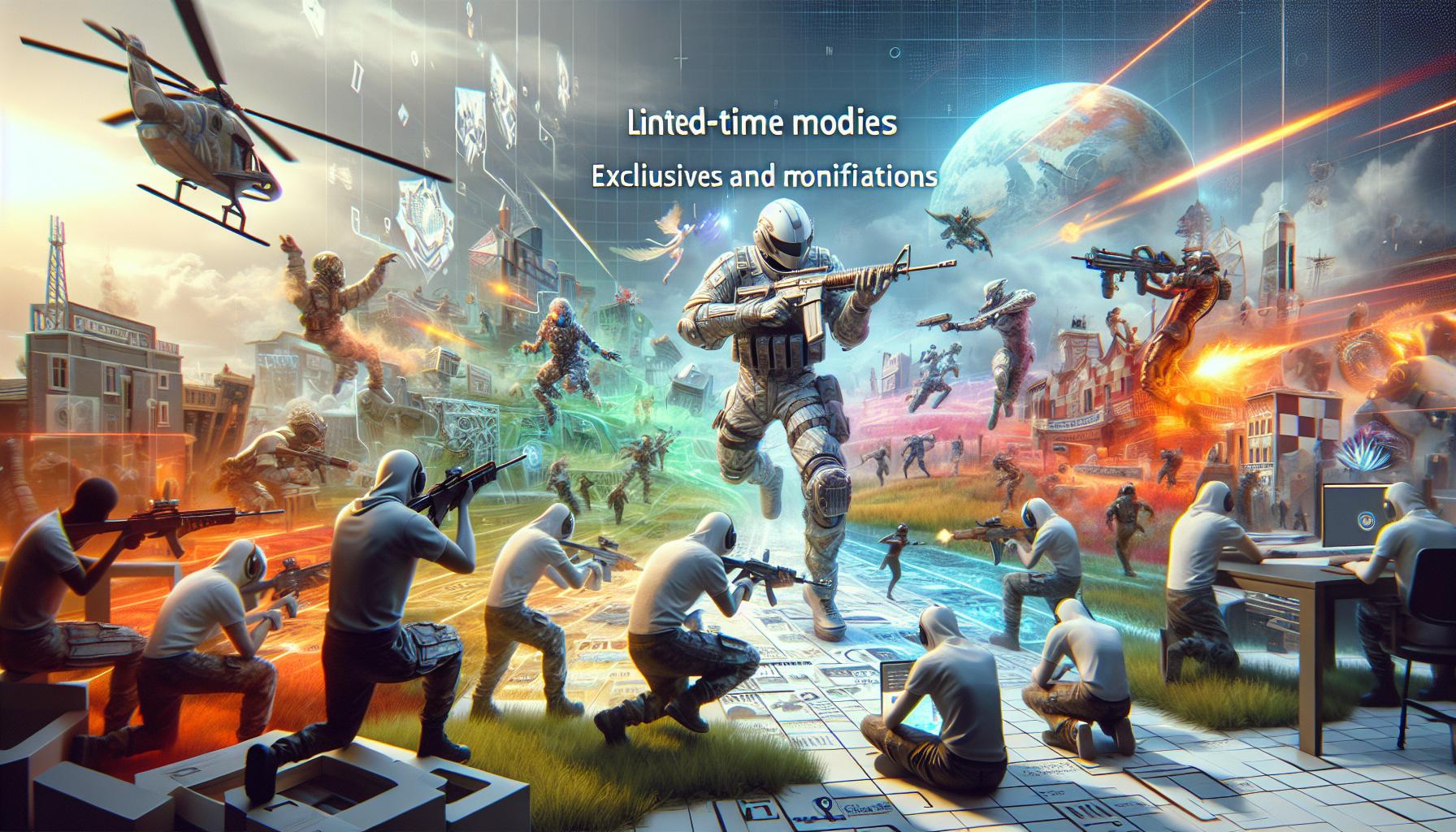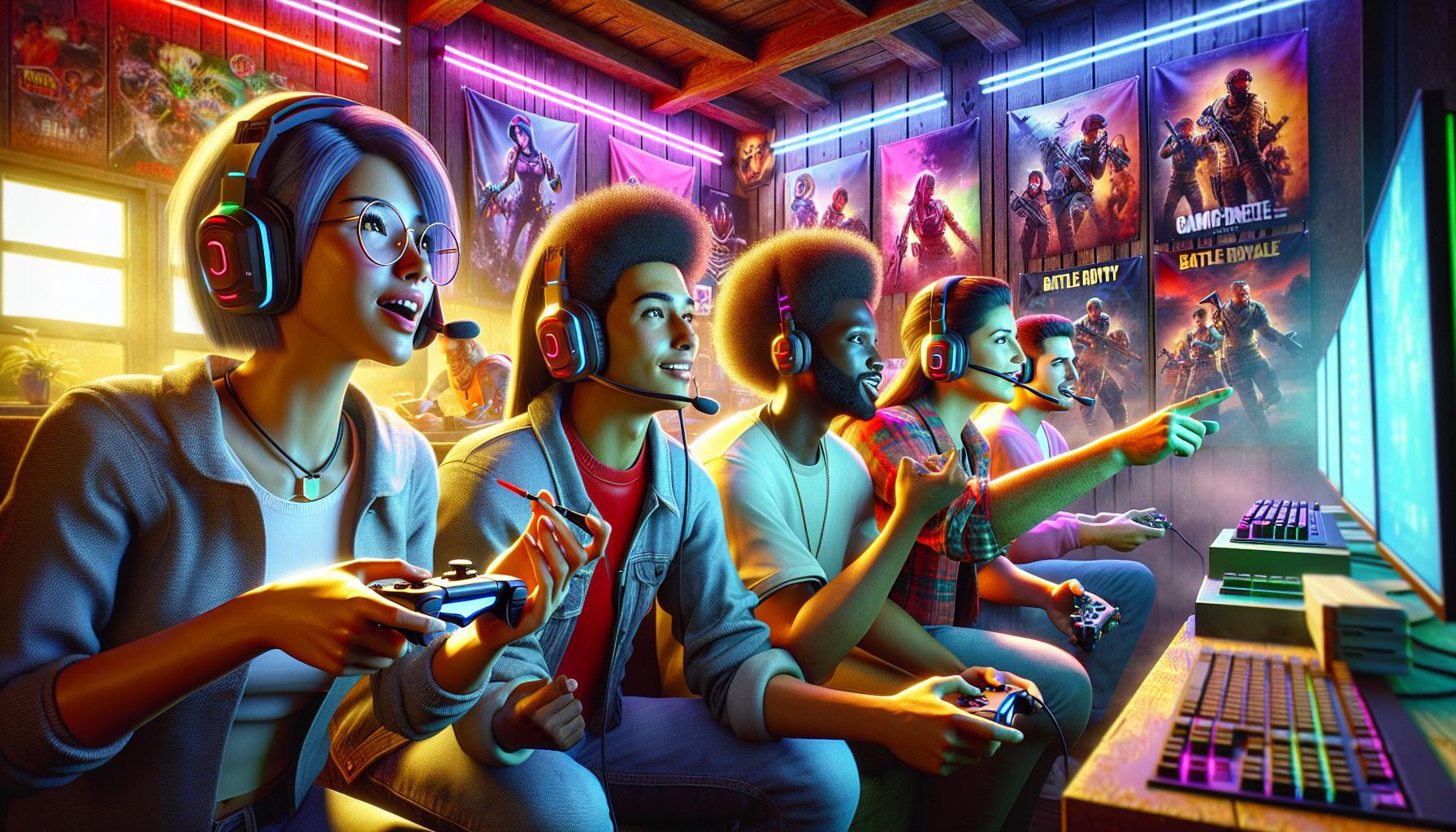In the fast-paced world of gaming, acronyms and jargon often shape our conversations. One term that’s gained traction is LTM, and it’s essential for any gamer to understand its significance. Whether you’re a casual player or a competitive enthusiast, knowing what LTM means can enhance your gaming experience and strategy.
LTM stands for Limited Time Mode, a feature that keeps gameplay fresh and exciting. Game developers regularly introduce these modes to engage players and offer unique challenges. From special events to themed gameplay, LTMs can transform the way we play our favorite titles. So, let’s dive deeper into the meaning of LTM and explore how it impacts the gaming landscape.
Key Takeaways
- Definition of LTM: LTM stands for Limited Time Mode, a temporary gaming experience that introduces unique challenges and gameplay variations to enhance player engagement.
- Origins: The concept of LTMs dates back to the early 2010s, initially used by games like Battlefield and Halo to retain player interest and foster community engagement.
- Popular Examples: Notable games implementing LTMs include Fortnite, Call of Duty, Apex Legends, Overwatch, and Destiny 2, each offering distinct modes that alter standard gameplay experiences.
- Benefits for Players: LTMs enrich the gaming experience by providing new rules and challenges, encouraging teamwork, and offering exclusive rewards that motivate participation.
- Community Engagement: These modes not only promote player retention but also foster discussion and interaction within the gaming community, boosting the overall excitement and longevity of the game.
- Challenges: Developers face challenges such as balancing gameplay dynamics and meeting diverse player expectations, which can impact the success and enjoyment of LTMs.
LTM Meaning Gaming
LTM, or Limited Time Mode, plays a critical role in gaming, enhancing player engagement and excitement. LTMs allow developers to provide unique gameplay experiences that vary from the standard game modes.
What Is LTM?
LTM refers to a temporary mode within a game, often available for a set period. This mode can introduce different rules, objectives, or challenges that deviate from the regular gameplay. For instance, players might experience altered mechanics, exclusive rewards, or themed events that coincide with holidays or special occasions. Popular titles like Fortnite and Call of Duty frequently utilize LTMs to keep players returning.
Origins of LTM in Gaming
The concept of LTM originated in the early 2010s as developers sought innovative ways to retain player interest. Games such as Battlefield and Halo introduced limited-time events to foster competition and community engagement. These events often highlighted new content, tested player skills, and generated excitement. Over time, LTM evolved into a staple across various genres, allowing studios to refresh their titles and enhance the overall gaming experience.
Popular Games Using LTM

Many games utilize LTM to enhance engagement and creativity. These modes often change gameplay dynamics, attracting both new and returning players.
Examples of LTM in Action
- Fortnite: Fortnite frequently hosts LTMs, such as “The Floor is Lava,” where players navigate a map filled with rising lava, adjusting their strategies accordingly.
- Call of Duty Warzone: LTMs like “Resurgence” allow players to respawn under specific conditions, adding a fresh layer to the traditional battle royale format.
- Apex Legends: In Apex Legends, limited-time modes such as “Dummie’s Big Day” introduce unique objectives and gameplay shifts, encouraging players to adapt quickly.
- Overwatch: Overwatch features LTMs like “Lucio Ball,” a summer event combining soccer with hero abilities, offering a fun twist to standard gameplay.
- Destiny 2: Destiny 2’s “Iron Banner” is an LTM that modifies PvP rules, providing unique rewards and changing the competitive landscape.
- Positive Feedback: Players often express excitement about the novelty of LS, appreciating the fresh challenges and opportunities for teamwork.
- Increased Engagement: LTMs frequently enhance player retention and foster community interaction through shared experiences during limited-time events.
- Mixed Opinions: Some players prefer traditional gameplay and voice concerns over changes, especially if LTMs disrupt their preferred playstyles.
- Creative Participation: Community events inspired by LTMs often lead to fan art, discussions, and social media engagement, showcasing the modes’ impact outside the game.
- Competitive Spirit: Many competitive players welcome LTMs, viewing them as opportunities to showcase skills in varying formats, enhancing their overall experience.
Benefits of LTM in Gaming

LTM significantly enhances the overall gaming experience and contributes to the long-term sustainability of games. Understanding these benefits helps players appreciate the innovations that LTMs bring to their favorite titles.
Enhancing Player Experience
LTMs introduce fresh gameplay elements that keep players engaged. Players encounter novel rules, challenges, and environments, which often lead to memorable gaming moments. For instance, in Fortnite’s “The Floor is Lava,” players adapt their strategies to avoid lava hazards, creating dynamic gameplay not present in standard modes. These unique scenarios encourage teamwork and enhance social interactions, as players collaborate to meet specific objectives or overcome challenges together. Additionally, exclusive rewards tied to LTMs, such as skins or emotes, motivate players to participate actively in these events, leading to a richer gaming experience.
Promoting Game Longevity
LTMs play a crucial role in extending a game’s lifespan. By regularly introducing new modes, developers maintain player interest and reduce monotony in gameplay. The excitement generated from limited-time events fosters continuous engagement, encouraging players to return frequently. For example, Call of Duty Warzone’s “Resurgence” mode reinvigorates interest during downtimes between major updates. Moreover, frequent LTMs promote community discussions and interactions, keeping the player base vibrant and active. As players discuss strategies and share experiences, a sense of community forms, further strengthening their connection to the game and enhancing its longevity.
Challenges and Criticisms of LTM

Limited Time Modes (LTMs) come with their own set of challenges and criticisms, which can affect player experiences and developer intentions.
Balancing Gameplay Dynamics
Balancing gameplay dynamics poses a significant challenge for developers. LTMs often introduce new mechanics that differ from standard gameplay, leading to imbalances that some players may exploit. For example, in a unique mode where one weapon is overpowered, players relying on that weapon can dominate the experience, frustrating others. Developers must constantly tweak these modes to maintain fairness and ensure that challenges remain enjoyable for all players.
Addressing Player Expectations
Addressing player expectations proves essential for the success of LTMs. Players eagerly anticipate new content, but not all modes resonate with every individual. Some players prefer traditional gameplay and may find LTMs disruptive to their routine. When developers fail to meet the diverse preferences within the community, it can lead to dissatisfaction. Continuous feedback from players helps accommodate various expectations, ensuring that future LTMs engage a broader audience and maintain community interest.
Connection
Understanding LTM in gaming is essential for any player looking to enhance their experience. These limited-time modes bring excitement and a fresh twist to gameplay that keeps us coming back for more. They not only foster community engagement but also provide unique challenges that can showcase our skills in new ways.
While some may prefer traditional gameplay, the thrill of LTMs can’t be denied. They keep the gaming landscape dynamic and encourage teamwork and creativity. As developers continue to innovate, I’m excited to see how future LTMs will evolve and impact our gaming experiences. Embracing these modes can lead to memorable moments and a deeper connection to the games we love.



